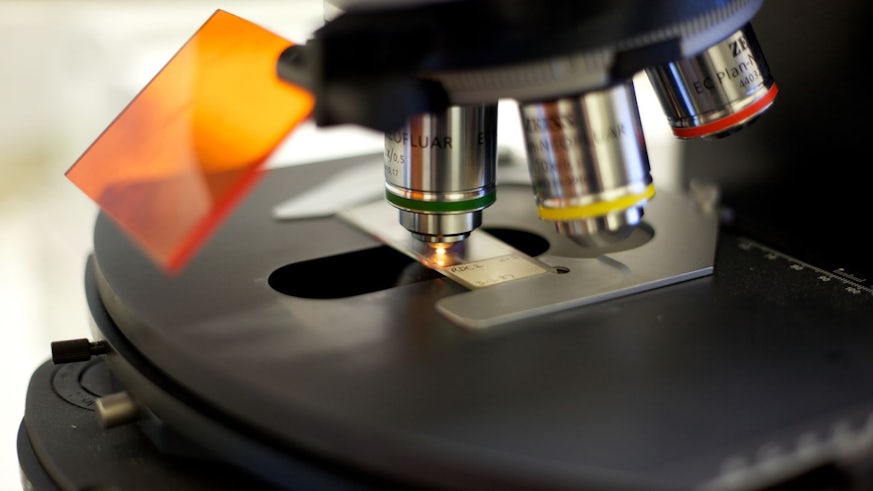Innovative brain cancer research
6 April 2017

Cardiff University hosted an event on Wednesday 5th April to showcase the innovative research taking place within the University to target the most aggressive and lethal forms of brain cancer.
The event also saw the charity Brain Tumour Research, supported by Thorne Mason Trust, present a cheque for £60,000 to Cardiff PhD student, Catio Neto, as part-funding for her research into glioblastoma multiforme (GBM) brain tumours.
One of the organisers, Professor Mark Gumbleton, from Cardiff University’s School of Pharmacy and Pharmaceutical Sciences, said: “Funding from charities such as Cancer Research Wales, Brain Tumour Research and Thorne Mason Trust, as well as Tenovus, CRUK and NC3Rs and Health Care Research Wales, is having a real impact upon Cardiff’s growing capacity for brain tumour research, an area of unmet research need that is often neglected.”
Brain tumours kill more children and adults under the age of 40 than any other type of cancer, yet just 1% of the national spend on cancer research has been allocated to this devastating disease.

Glioblastoma multiforme brain tumours (GBM) are the most common form of brain cancer with the ability to invade neighbouring healthy tissue and resist drug and radiation treatments, making them virtually impossible to cure.
To highlight the importance of research in this area, and to showcase Cardiff’s expanding capacity for brain tumour investigations, local MPs, Welsh Assembly members, charity supporters and journalists were invited to the event at the Hadyn Ellis Building, Cardiff University. Attendees heard about the wide range of University-wide activities in brain tumour research, involving a range of Principal-investigators from Cardiff University, Cardiff & Vale Health Board and the Velindre Cancer Centre, and covering topics from translational laboratory science through to clinical neuro-oncology, neuro-pathology, surgical practices, and nursing and palliative care.
Guests were also given the opportunity to see some of Cardiff’s extensive research facilities including CUBRIC2 – Cardiff University’s state-of-the-art brain research neuroimaging centre, Cardiff’s European Cancer Stem Cell Research Institute (ECSRI) and hear about the work of Velindre Cancer Centre.


